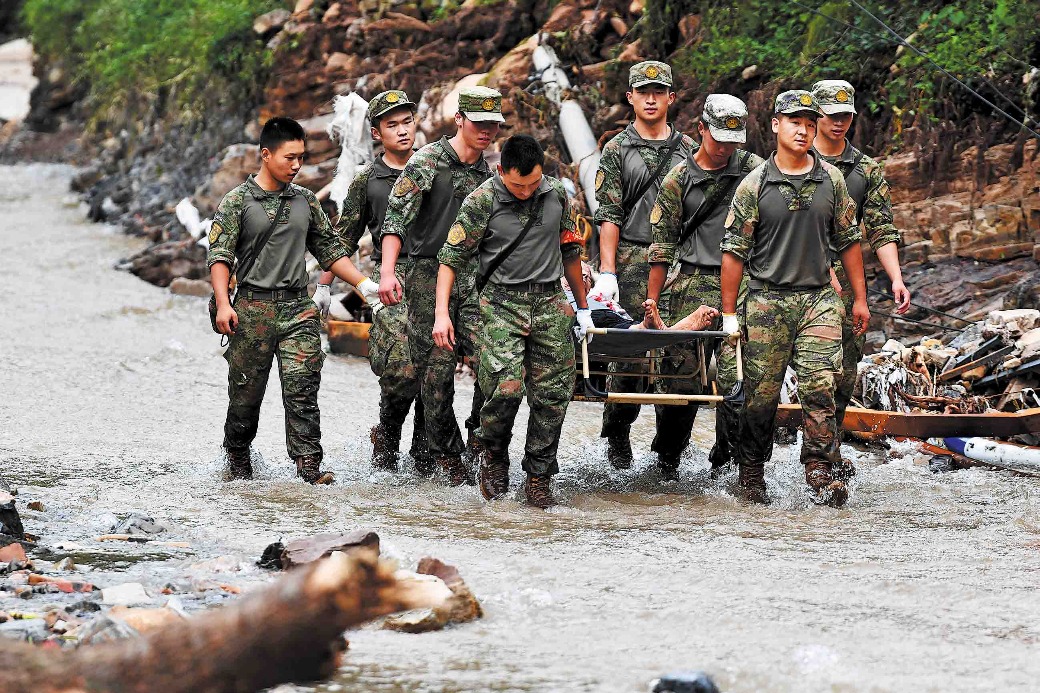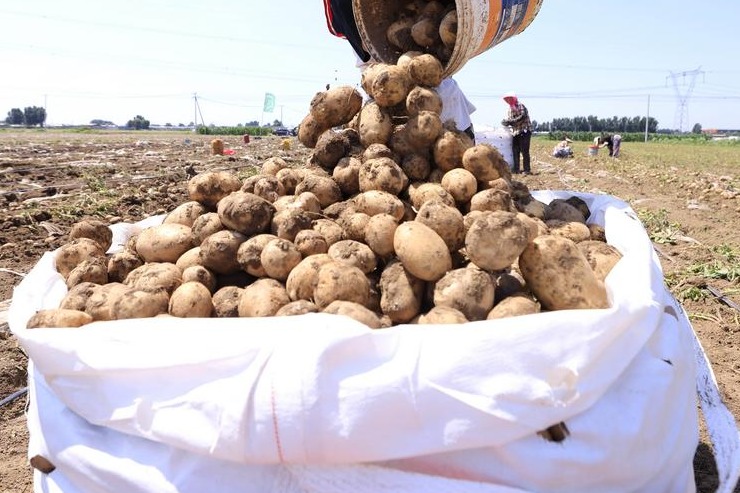Millions turn to food banks in hard-hit US
Pandemic-induced joblessness puts the hungry in long lines for handouts

Millions of people in the United States have been forced to turn to food banks after losing their jobs due to the coronavirus pandemic, leaving them struggling to feed themselves and their families.
Lazaro, a 62-year-old man who lives with his wife, son and daughter-in-law in Mountain View, California, is battling cancer and lost his job amid the pandemic. He turned to the Second Harvest food bank in his state to get by.
"We had been struggling a lot since I got very sick and I was not able to work," Lazaro said. "I only get half of my (social security benefits) and it's not enough to pay rent, utilities and food."
Diane Baker Hayward, a spokeswoman for Second Harvest of Silicon Valley, told China Daily: "Prior to the pandemic, we were already providing food to 250,000 people a month-more than ever before in our history.
"This high level of need was due in large part to the very high cost of housing in Santa Clara and San Mateo counties-what many refer to as Silicon Valley. When the pandemic hit, those numbers jumped to 500,000 people a month as many people lost their jobs or had hours cut at work. Many of the people we are seeing now have never received food assistance before."
Last year, more than 35 million people struggled to find food in the US. This year, that number has nearly doubled, according to the US Department of Agriculture's Household Survey for September.
At least 54 million people, including 18 million children, could struggle to have enough food this year, according to Feeding America, the nation's largest domestic hunger-relief organization with 200 food banks and 60,000 food pantries that feed 40 million people.
"Hunger in this country existed long before COVID-19, but the pandemic has thrust more of our neighbors into food insecurity," Claire Babineaux-Fontenot, CEO of Feeding America, said in a statement.
Since April, long lines that stretch for kilometers have formed at food banks in states like California, New York and Texas. Those most affected are seniors, families with children and ethnic minorities, research shows.
Jennell Johnson, from Los Angeles, waited hours to get donated food. "It's a blessing, it's helped me. It's tough but we're hanging in there. We're praying," she said.
In New York, at least 1.5 million people, including children, struggle to afford food. Since March, New York City food pantries received 12 million visits, a 36 percent rise compared with the same time in 2019, according to City Harvest, a nonprofit group and the city's largest food-rescue organization.
Jen McLean, chief operating officer for City Harvest, said: "Even before the crisis, 2.5 million working-age New Yorkers were struggling to make ends meet, and one in five New York City children didn't know where their next meal was coming from.... In the coming weeks and months, many more will experience crippling financial hardship. ... City Harvest ... is mobilized to feed families."
Unmet demand
The Houston Food bank in Texas, one of the largest in the US, has also seen a massive surge in demand. CEO Brian Greene estimates that the group usually gives out 80 million pounds (36,287 tons) of food a year, but this year they've given out 100 million pounds of food and it has not met demand.
COVID-19 led to 22.5 percent of households struggling for food from May 5 to July 21, research by Northwestern University's Institute for Policy Research. Black, Hispanic and Native American households had even higher rates.
Nationwide, more than 787,000 people filed unemployment claims in late October, figures from the Labor Department showed. Additionally, there has been a rise in new COVID-19 hospitalizations in 37 states.
The fallout from these issues has led food banks to see unprecedented demand that Second Harvest expects will continue for a further 12 to 18 months.
Food banks buy discounted bulk food supplies from grocery stores, but have had to cope with food shortages this year.
Democratic and Republican lawmakers are working on a new coronavirus relief bill but nothing has passed yet.
Today's Top News
- Unified national market a new growth launchpad
- US deal a structural challenge for Japan
- Industrial prowess of China a subject of serious study
- US new tariffs 'unfair': Experts
- NDRC recalibrating steps to drive growth, boost demand
- Wartime hero's legacy fortifies Sino-UK bond






























